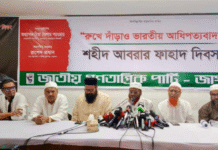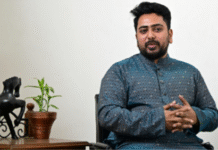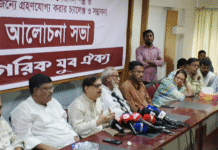
The Bangladesh Jamaat-e-Islami will not accept any national election without reforms, the party’s Nayeb-e-Ameer Syed Abdullah Mohammad Taher said today (1 July).
“In the upcoming election, those who receive the people’s votes will be the ones elected. The election must be free and fair. Otherwise, the country will face a grave situation, which the people will not accept,” Taher warned at a prayer gathering in Dhaka’s Paltan area.
At the event, held in memory of those killed and injured in the July uprising, he added, “We believe that if necessary, the people of this country will once again be ready to fight. Jamaat will not accept any election without reforms.”
Addressing scepticism about the outcomes of the July movement, he said, “As reforms and justice remain unseen, some people are expressing doubts about the success of the July events. But in our view, it was a great achievement – it marked the ousting of a tyrannical regime and the liberation of the people. It is not yet time to say that July was a failure.”
He highlighted the significance of political unity brought about by the movement, saying, “The July revolution created a unity where even parties of differing ideologies came together on the same platform. The people are now much more aware. The autocratic mindset hasn’t ended yet, but it will be ultimately defeated through the people’s vote.”
On the topic of electoral systems, Taher said, “Except for two parties, all other parties have reached a consensus on holding elections under the PR [proportional representation] system.”
Also speaking at the event, Jamaat Dhaka City South unit Secretary Shafiqul Islam Masud said, “The government should not make any political decisions without consulting the families of the martyrs. Political leaders are only talking about elections, but they remain silent on justice and structural reforms.”
Other speakers echoed calls for justice for the July killings and stressed the need to adopt the PR system in future elections. They also urged the government to consider the opinions of the families of the martyrs before making any political decisions.









